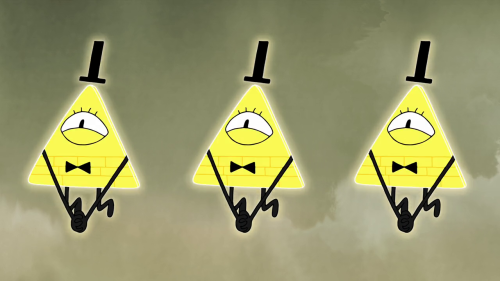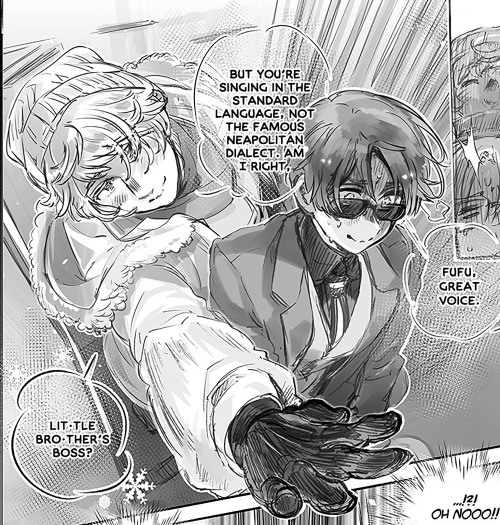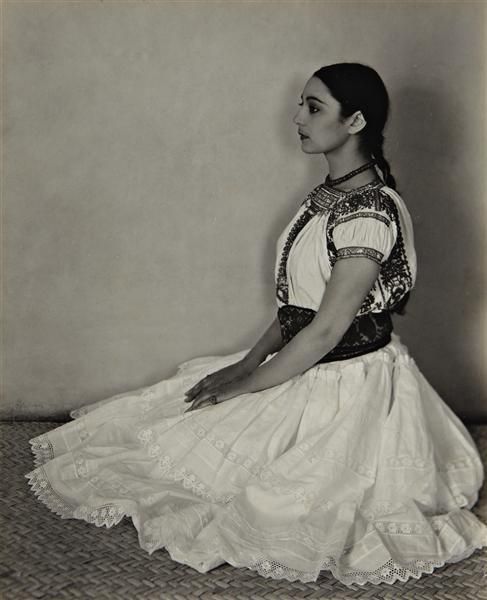DO YOU KNOW WHAT SPAWNED YOUR EXISTENCE?


DO YOU KNOW WHAT SPAWNED YOUR EXISTENCE?
[ID: Two lineless, digital paintings, both with warm, dark gray backgrounds. Both canvases are shaped like exact squares.
Painting one shows an adult Bill Cipher, a bright yellow triangle with a top hat, bow tie, cane, singular eye, and long lashes, reaching out to shake hands with the Axolotl, a pink axolotl with an electric blue tail. Bill is looking at the Axolotl casually, and his outstretched hand is engulfed in blue flames, while the Axolotl is smiling at Bill gently, reaching out to take his hand. There are stylized stars, similar to sparkles, in the top right and bottom lefthand corners of the painting. The painting is textured so that you can see the gray of the canvas very faintly through the brush strokes.
Painting two consists mostly of a short passage from Edwin Abbott Abbot's Flatland, written in light gray over the dark background. The passage is the beginning of chapter 7, and reads as follows:
"7. Concerning Irregular Figures
I for my part have never known and Irregular who was not also what Nature evidently intended him to be-- a hypocrite, a misanthropist, and, up to the limits of his power, a perpetrator of all manner of mischief..."
Below the quote, near the very bottom of the page, is a tiny illustration of a very young Bill Cipher. He is drawn completely in grayscale, and is looking down at the ground angrily, fists clenched. He is wearing a pauper's cap and has bandages wrapped around his rightmost angle, which is noticeably longer and more acute than his other angles.
End ID]
More Posts from Quiina and Others
bill cipher is such a good design hes just a little guy. hes just fuckin like


this is your daily reminder that sans the skeleton canonically loves eating cigarettes.
bill cipher is the character ever. he swears in cartoon sound effects. he has beef with a baby. he didn't know what colors were until he was like at least 27. he's the most powerful being to ever visit earth. he only exists in dreams. he's an alcoholic. he's a victorian. he almost certainly worked retail. he doesn't know about his own gender. he also doesn't care about his own gender. he's depressed. he likes silly straws. he knows everything. he's stupid as shit. he thinks that normal is just a setting on a washing machine. he's touchy about his sides being uneven. he's a flatland oc. he's owned by disney. he responds to "willy." he thinks in all caps. he has a reddit account




palestinian embroidery obi project
The collective works with Palestinian women (refugees and those living in Gaza) to create tatreez (Palestinian embroidery) for Japanese obis (wide sash/belt). They also participate in cross cultural initiatives such as embroidery workshops and exhibitions.




bill cipher is so funny to me i love him so much i cannot believe people thought he was some kind of sexy tall guy back in the show's heyday. like are you kidding me this is a cute little thing with a silly hat and a funny bowtie and he has noodley arms and tiny hands and sock feet. he looks like a cereal mascot. he looks like an oldschool kirby antagonist. he looks like a bootleg toy you'd win at a fair. this creature is a small animal to me. i want to lounge on the couch watching tv while i pet him in my lap. he would leave me gouged out eyeballs of local wildlife and neighbour's pets on my front porch but i would just tell everyone Its ok he just has a lot of energy and ambition and personality :) don't worry about it


They are old bitter exes, OF COURSE I'D SHIP BILLFORD
THE ENTIRE TIME
I WATCHED GRAVITY FALLS
MY FATHER
THOUGHT BILL CIPHER
WAS A FUCKING
CHEESE WEDGE
UNIRONICALLY
HE THOUGHT BILL CIPHER WAS A
WEDGE OF CHEESE

Goncharov (1973) - variant poster 2
[link: variant poster 3]


I see great potential in this scene 💕

Edward Weston | Cholula Costume, circa 1926
Catalogue Essay:
In 1923 at the urging of his friend Roubaix de l’Abrie Richey and their shared lover Tina Modotti, Edward Weston left his family and moved to Mexico where he embarked on a new chapter in his career that would prove influential in directing the course of his photography. Whereas his earlier portraits adhere to many of the classic characteristics of 19th century portraiture- stoic poses, elaborate costumes, accessories reflective of the sitter- his Mexican period, as seen in lots 254, 255 and 257, illustrates his interest in incorporating elements of Modernism and experimenting with alternate methods and approaches to portraiture. In his first portraits in Mexico, Weston abandoned the studio setting and photographed his sitters against the backdrop of an overcast sky. Tightly cropping the images so that their faces dominated the full frame and shooting from a lower vantage point, gave the sitters a weight and monumentality atypical of the classic portrait. Collectively, Weston had come to refer to that body of work as “heads.” The Mexican writer Francisco Monterde Garcia Icazbalceta perceptively described them as “guillotine heads in the noon sun: unreal necks and martyred eyes in harsh, insolent light.” (Conger, n.p. fig 110/1923) By isolating the head from all context, Weston was able to capture uniquely intimate moments, ones that speak to, not only the disposition of the sitters, but even more to Weston’s personal relationships with them. When Weston met Diego Rivera at his first exhibition in Mexico in the fall of 1923, Rivera quickly became a champion of his work, drawn to the Modernist elements echoed in his own works.The two became close friends and Weston would go on to photograph both Rivera and his wife Guadalupe Marin de Rivera during his two years in Mexico. In Diego Rivera, Mexico, 1924 (Lot 255) one can see the admiration and respect that Weston had for his new friend; that Rivera looks down upon Weston with a jovial expression and Weston, in turn, literally looks up to Rivera, suggests a rapport reminiscent of a mentor with his mentee. Similarly, in Guadalupe Marin de Rivera, 1923 (Lot 257) Weston captures her mid-speech with her mouth agape. From Weston’s own writings of Guadalupe, this is perhaps the most appropriate manner for him to depict her as he wrote of his affection for her “strong voice, almost course, dominating.” But neither of these “heads” are quite as revealing as Tina with Tear, 1923 (Lot 254), which shows Modotti with a tear rolling down her cheek. The act of photographing someone, by its very nature, is an intimate act, but to do as that someone expresses vulnerability supposes an undeniable trust between the photographer and sitter. While Weston’s nudes of Modotti are far more intimate in a literal way, their chief concern lies within the formal qualities of her body. Here, by contrast, the camera nearly becomes transparent as we see Modotti not through a lens but through the adoring eye of her lover. In as much as Weston’s “heads” demonstrate his fascination with contemporary icons of Mexican art, such as Rivera and his wife, he was equally interested in the greater history of Mexican culture. In Cholula Costume (lot 256), Weston portrays the dancer and choreographer Rosa Covarrubias in native Mexican attire. In 1930 Rosa married Miguel Covarrubias, the renowned Mexican ethnologist, art historian, painter, caricaturist, and set and costume designer. Rosa and Miguel were close friends of Weston and Modotti, who taught Rosa photography. What Weston captured in his lens is not merely the “woman of great beauty and charm” as described by José Limón in his biography, but also a model of traditional Mexican culture, one that was researched and consequently introduced by Rosa and her husband to create a new era in contemporary Mexican dance.
-
 dabigbirb liked this · 1 month ago
dabigbirb liked this · 1 month ago -
 ok1237 liked this · 6 months ago
ok1237 liked this · 6 months ago -
 snakes-on-skates liked this · 7 months ago
snakes-on-skates liked this · 7 months ago -
 555void liked this · 8 months ago
555void liked this · 8 months ago -
 voidfawn333 liked this · 8 months ago
voidfawn333 liked this · 8 months ago -
 billybob162 liked this · 8 months ago
billybob162 liked this · 8 months ago -
 16idk liked this · 8 months ago
16idk liked this · 8 months ago -
 sicut-anima liked this · 9 months ago
sicut-anima liked this · 9 months ago -
 kosova404 liked this · 9 months ago
kosova404 liked this · 9 months ago -
 sunshineinthemedow liked this · 9 months ago
sunshineinthemedow liked this · 9 months ago -
 mionkings liked this · 9 months ago
mionkings liked this · 9 months ago -
 ranhanako2009 liked this · 9 months ago
ranhanako2009 liked this · 9 months ago -
 funfairfallacy liked this · 9 months ago
funfairfallacy liked this · 9 months ago -
 magpiegrave reblogged this · 11 months ago
magpiegrave reblogged this · 11 months ago -
 magpiegrave liked this · 11 months ago
magpiegrave liked this · 11 months ago -
 anchouzzz-here liked this · 11 months ago
anchouzzz-here liked this · 11 months ago -
 thestrawberryfairy liked this · 11 months ago
thestrawberryfairy liked this · 11 months ago -
 chimera-klown liked this · 1 year ago
chimera-klown liked this · 1 year ago -
 random1089 liked this · 1 year ago
random1089 liked this · 1 year ago -
 bionic-baby liked this · 1 year ago
bionic-baby liked this · 1 year ago -
 mossear07 liked this · 1 year ago
mossear07 liked this · 1 year ago -
 whatifijustmashedwordstogether liked this · 1 year ago
whatifijustmashedwordstogether liked this · 1 year ago -
 creepyksy liked this · 1 year ago
creepyksy liked this · 1 year ago -
 eldritch-sexting liked this · 1 year ago
eldritch-sexting liked this · 1 year ago -
 adhdhom0 liked this · 1 year ago
adhdhom0 liked this · 1 year ago -
 star-sailor87 liked this · 1 year ago
star-sailor87 liked this · 1 year ago -
 crustidoritoman liked this · 1 year ago
crustidoritoman liked this · 1 year ago -
 arandomaquarius liked this · 1 year ago
arandomaquarius liked this · 1 year ago -
 03101262 liked this · 1 year ago
03101262 liked this · 1 year ago -
 autisticfordprefect liked this · 1 year ago
autisticfordprefect liked this · 1 year ago -
 accessible-flatland-art reblogged this · 1 year ago
accessible-flatland-art reblogged this · 1 year ago -
 millietheshaymin liked this · 1 year ago
millietheshaymin liked this · 1 year ago -
 pluseticc liked this · 1 year ago
pluseticc liked this · 1 year ago -
 bunniworms liked this · 1 year ago
bunniworms liked this · 1 year ago -
 irregularbillcipher reblogged this · 1 year ago
irregularbillcipher reblogged this · 1 year ago -
 warpedmine liked this · 1 year ago
warpedmine liked this · 1 year ago -
 persimmon-prince liked this · 1 year ago
persimmon-prince liked this · 1 year ago -
 fandommadnessthings liked this · 1 year ago
fandommadnessthings liked this · 1 year ago -
 peanut-with-wifi-access reblogged this · 1 year ago
peanut-with-wifi-access reblogged this · 1 year ago -
 peanut-with-wifi-access liked this · 1 year ago
peanut-with-wifi-access liked this · 1 year ago -
 drasosil liked this · 1 year ago
drasosil liked this · 1 year ago -
 forddudosinka liked this · 1 year ago
forddudosinka liked this · 1 year ago -
 stabby-stabby-yall liked this · 1 year ago
stabby-stabby-yall liked this · 1 year ago -
 rexxydog liked this · 1 year ago
rexxydog liked this · 1 year ago -
 mayorflatlandstables liked this · 1 year ago
mayorflatlandstables liked this · 1 year ago -
 fallenfoxie liked this · 1 year ago
fallenfoxie liked this · 1 year ago -
 thatcrazymage liked this · 1 year ago
thatcrazymage liked this · 1 year ago -
 goodwillfidgetspinner liked this · 1 year ago
goodwillfidgetspinner liked this · 1 year ago

Sorry for my bad english ;_; | Sometimes i'm obsessed with Undertale and sometimes with Dragon Ball/
171 posts